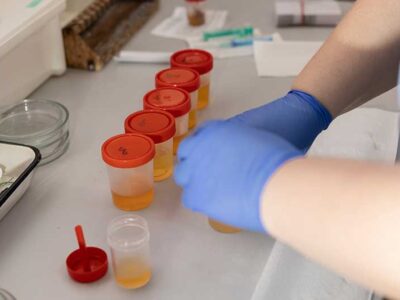Breast cancer is a formidable foe that affects millions of lives throughout the globe. Medical science has made extraordinary strides in the fight against this disease, particularly in the area of early detection. When breast cancer is detected in its early phases, the prognosis is typically much more favorable, and the likelihood of successful treatment is substantially greater. This article will discuss the significance of early detection as the key to eliminating breast cancer.
The Advantages of Early Diagnosis
Breast cancer is identified through early detection before it has a chance to extend beyond the breast tissue. Regular examinations, such as mammograms, clinical breast exams, and self-breast exams, are typically used to accomplish this. When detected at an early stage, cancer is typically smaller and has not yet spread to adjacent lymph nodes or distant organs. This increases its responsiveness to treatment and the likelihood of complete remission.
Expanded Treatment Alternatives
One of the primary advantages of early breast cancer detection is the availability of more treatment options. When cancer is localized and has not spread, lumpectomies and partial mastectomies can remove the tumor effectively without the need for more invasive procedures such as complete mastectomies. In addition, less invasive treatments, such as targeted therapies, hormone therapies, and radiation, can be used to eliminate cancer cells while preserving general health.
Enhanced Prognosis
Detection at an early stage often results in a significantly improved prognosis. The sooner breast cancer is detected, the greater the likelihood of effective treatment and long-term survival. Cancers in their earliest stages are less likely to recur or disseminate, allowing patients to resume their normal lives with minimal disruption.
Reduced Intensity of Treatment
In cases of advanced breast cancer, treatment regimens may be more aggressive and necessitate the use of stronger medications, resulting in more severe adverse effects. Early detection of breast cancer allows physicians to employ less aggressive treatments, thereby minimizing the impact on a patient’s quality of life. This reduction in treatment intensity can make the road to recovery less physically taxing and more comfortable.
Through Knowledge, One Is Empowered
Regular self-breast exams and clinical examinations empower individuals with body awareness. Recognizing the significance of early detection encourages women to monitor their breast health and seek medical attention if abnormalities are detected. This sense of autonomy not only leads to early diagnosis, but also promotes health consciousness and well-being in general.
Preserving Life
The power of early detection ultimately resides in its capacity to save lives. Early detection of breast cancer enables timely intervention and treatment, which can be the difference between life and mortality. Not only does early detection increase the likelihood of survival, but it also improves the overall quality of life for survivors.
The conclusion
Breast cancer is a formidable foe, but due to advances in medical science and a greater understanding of the significance of early detection, the prognosis is more optimistic than ever. Early breast cancer detection isn’t just about diagnosis; it’s also about giving individuals the best opportunity to beat the disease and resume their lives with hope and vitality. By realizing that early detection is the key to eradicating breast cancer, we can take charge of our health and contribute to the ongoing struggle against this pervasive and frequently devastating disease.



